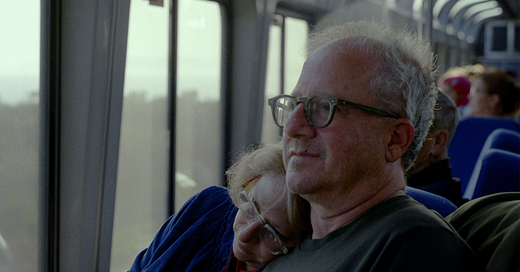When her husband was diagnosed with early onset Alzheimer's, she started filming
Heidi Levitt and her husband Charlie Hess have collaborated on WALK WITH ME, a tender, love-filled documentary covering the first four years of their learning to live as caregiver and patient.
After casting director Heidi Levitt and her design director husband Charlie Hess learned that Charlie had early onset Alzheimer’s, they did something highly unusual. Instead of battening down the hatches, retreating from the world, and making their lives smaller, simpler, and less public, they decided, with their children’s permission and participation,…
Keep reading with a 7-day free trial
Subscribe to Ladyparts to keep reading this post and get 7 days of free access to the full post archives.





